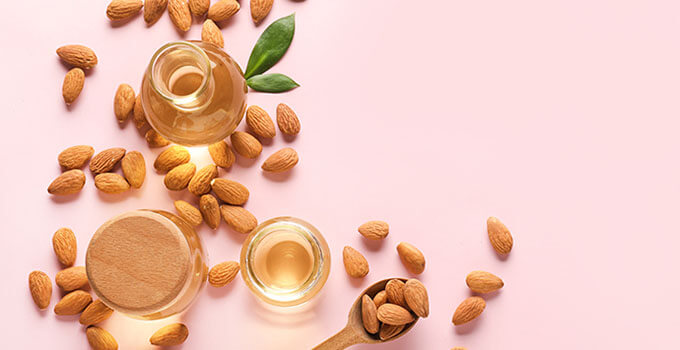
Natural remedy for dry hair
Are you looking for a natural remedy for dry hair? You have probably tried many products to get rid of your dry hair. One consolation, you are not the only one looking for a remedy that really helps. In this blog, you will read all about how to get rid of dry hair and natural remedies that do help against dry hair.
What is dry hair?
Dry hair is a condition of your hair and not a hair characteristic you are born with. Because dry hair is actually damaged hair. It is not possible to really repair dry hair because, after all, hair is not a living material. However, you can help your dry hair become a bit more supple by adding moisture and oil.
Structure of hair
A hair consists of three layers: the inner fibre called the medulla, the middle layer, the cortex, and the outer layer, the cuticle. When your hair gets damaged, the cuticles open, it becomes brittle, frizzy, gets tangled easily and loses moisture and shine. In short, it becomes dry.
Dry hair lacks moisture and oils because this cannot be retained by the damaged hair cuticles. So you will have to constantly replenish your hair with moisture and grease to keep it supple and thus also ensure that it does not further damage and dry out.
What natural remedies can you use for your dry hair?
Dry hair is a common complaint and hence the shops are bulging with products that repair your dry hair. But dry hair (actually damaged hair) unfortunately cannot be permanently restored. What you can do is moisturize and treat your hair every time, for instance with natural oils. Natural oils are free of harmful ingredients such as mineral oils and sulphates.
With natural oil, you temporarily smooth the cuticle, so your hair becomes manageable and supple and your hair looks healthy. Because you also seal the cuticle with oil, you prevent further damage to your hair.
Dyed hair also better retains the colour pigments in your hair. Your colour will not fade as quickly, and you will not have to dye your hair completely as often. Also read the blog 'can I still dye my hair if it is dry or damaged?'.
What also helps against dry hair is regularly having the ends cut, so your hair does not split any further.
Types of oil against dry hair
Some vegetable oils are known to have a good effect on dry hair, so they have been used worldwide for centuries.
You can use oil in two common ways: you can massage a very small amount of the oil into your ends and lengths to smooth your hair, or you use the oil as a mask, preferably under a warm towel or heat cap.
Coconut oil
According to a 2005 study, coconut oil is said to be the only oil that really penetrates hair fibers. You often find coconut as an ingredient in products for frizzy hair. It makes your hair shiny, and it feels a lot thicker afterwards. Do use 100% coconut oil and not a cosmetic product.
Coconut oil contains moisturising vitamin E, and is a natural softening ingredient. It fills in damage in the outer hair layer. As a result, your hair looks smoother and shinier.
Coconut oil mask for your dry hair
Once a week, you can treat your hair to a deeply nourishing treatment of heated coconut oil. Rub some room-temperature oil between your palms. Gently massage it into your dry hair. Apply mainly in the ends and at the hair roots. Wrap a damp, warm towel around your hair. Tip: warm the damp towel briefly in the microwave. Leave the oil on your hair for half an hour to an hour. Then rinse thoroughly, wash your hair as usual.
Olive oil
Olive oil is another well-known one in hair care. Olive oil softens hair and replenishes moisture. Do use only the extra-virgin olive oil, so you can be sure that there has been no chemical treatment and the oil contains more vitamins and nutrients. Make a mask as described above under 'coconut oil mask'.
Almond oil
With large amounts of vitamin E, almond oil is known to make hair healthier overall. If breakage is a problem, almond oil can help make hair less vulnerable to split ends. If you have a dry scalp, almond oil works really well and smells great! Make a mask as described above under 'coconut oil mask'.
Jojoba oil
This oil extracted from the seeds of an American bush is a great leave-in treatment or moisturising mask. Jojoba oil is also said to promote hair growth. You can also mix jojoba oil with your conditioner for extra hydration without weighing down your locks. Make a mask as described above under 'coconut oil mask'.
Castor oil
Castor oil is also called miracle oil, ricin -or ricinus oil. It is a very thick oil with special qualities: In fact, castor oil is over 90% Ricinoleic acid (an omega 9 fatty acid) and contains omega 6 fatty acids as well as vitamin E. These help keep hair more supple, making it less likely to break and damage.
Apply a small amount to the ends of your hair to make your hair smoother. You can also apply castor oil as a moisturising mask. Castor oil naturally contains Omega-9 fats. Massage the oil well into your scalp and let it soak in. By massaging in, you get the circulation going, and the active ingredients can be absorbed even better. Use a warm towel or heat cap to let the oil do its job even better. Leave the castor oil on for a few hours, or leave it on overnight.
Be careful with an oil treatment and recently dyed hair!
Have you just dyed your hair or given it another colour treatment? Then wait a week before doing an intensive oil treatment.
Make your own shampoo
Use a homemade shampoo made of potato flour once or twice a year. Potato flour? Yes really! Potatoes are packed with vitamins and minerals, including vitamins B, C and iron, which help strengthen your hair and prevent hair loss and breakage. For this, you will need ¼ cup of potato flour, two cups of water and two teaspoons of apple cider vinegar. Put the potato flour in a pan, mix until smooth and let the mixture heat on low heat for 15 minutes. Remove from heat, add vinegar until blended, and leave to cool before using. Once cooled, pour into a bottle and use instead of traditional shampoo. Massage well over your scalp, too.
Yoghurt mask
Yoghurt, or actually the lactic acid in yoghurt, acts as a moisturizer. It also slows down the loss of moisture in the hair. Yoghurt helps smooth the hair follicles and retain moisture. Simply apply the yoghurt all over your hair and leave it on for at least 20 minutes. Rinse out and use your usual shampoo and conditioner, and finish by rinsing with cold water for a mega shine.
Egg mask
It's no secret that eggs are a healthy source of protein. That sunshine yellow yolk is rich in healthy fats and vitamins and has a really hydrating effect when applied to hair. Not to mention, the amino acids in eggs help keep your locks smooth, nourished and even protected from sun and pollution damage. For dry hair, use the whole egg, both the whites and yolks, to moisturise and strengthen hair.
For short hair, one egg should be enough, and for longer hair, try whisking in two to three eggs or until the whole hair is covered. Leave it on for 20 to 30 minutes and rinse with cold to lukewarm water before washing. Do not use warm or hot water, as this will cause the egg to clot in your hair. Since too much protein can potentially harm hair, we recommend not using this mask more than once or twice a month.
Rinse with cold water
As a last natural remedy for dry hair, not a treatment, but a final good tip. Have you washed your hair? Rinse your hair, the last rinse with cold water. According to hair stylists, rinsing with cold water is a proven remedy to stop hair damage. The cold water closes the hair cuticles, keeping moisture in, and it will help protect your hair.
Give these natural remedies for dry hair a try, who knows, maybe the golden tip is among them for you!
Have you just dyed your hair or given it another colour treatment? Then wait a week before doing an intensive oil treatment.
Make your own shampoo
Use a homemade shampoo made of potato flour once or twice a year. Potato flour? Yes really! Potatoes are packed with vitamins and minerals, including vitamins B, C and iron, which help strengthen your hair and prevent hair loss and breakage. For this, you will need ¼ cup of potato flour, two cups of water and two teaspoons of apple cider vinegar. Put the potato flour in a pan, mix until smooth and let the mixture heat on low heat for 15 minutes. Remove from heat, add vinegar until blended, and leave to cool before using. Once cooled, pour into a bottle and use instead of traditional shampoo. Massage well over your scalp, too.
Yoghurt mask
Yoghurt, or actually the lactic acid in yoghurt, acts as a moisturizer. It also slows down the loss of moisture in the hair. Yoghurt helps smooth the hair follicles and retain moisture. Simply apply the yoghurt all over your hair and leave it on for at least 20 minutes. Rinse out and use your usual shampoo and conditioner, and finish by rinsing with cold water for a mega shine.
Egg mask
It's no secret that eggs are a healthy source of protein. That sunshine yellow yolk is rich in healthy fats and vitamins and has a really hydrating effect when applied to hair. Not to mention, the amino acids in eggs help keep your locks smooth, nourished and even protected from sun and pollution damage. For dry hair, use the whole egg, both the whites and yolks, to moisturise and strengthen hair.
For short hair, one egg should be enough, and for longer hair, try whisking in two to three eggs or until the whole hair is covered. Leave it on for 20 to 30 minutes and rinse with cold to lukewarm water before washing. Do not use warm or hot water, as this will cause the egg to clot in your hair. Since too much protein can potentially harm hair, we recommend not using this mask more than once or twice a month.
Rinse with cold water
As a last natural remedy for dry hair, not a treatment, but a final good tip. Have you washed your hair? Rinse your hair, the last rinse with cold water. According to hair stylists, rinsing with cold water is a proven remedy to stop hair damage. The cold water closes the hair cuticles, keeping moisture in, and it will help protect your hair.
Give these natural remedies for dry hair a try, who knows, maybe the golden tip is among them for you!
